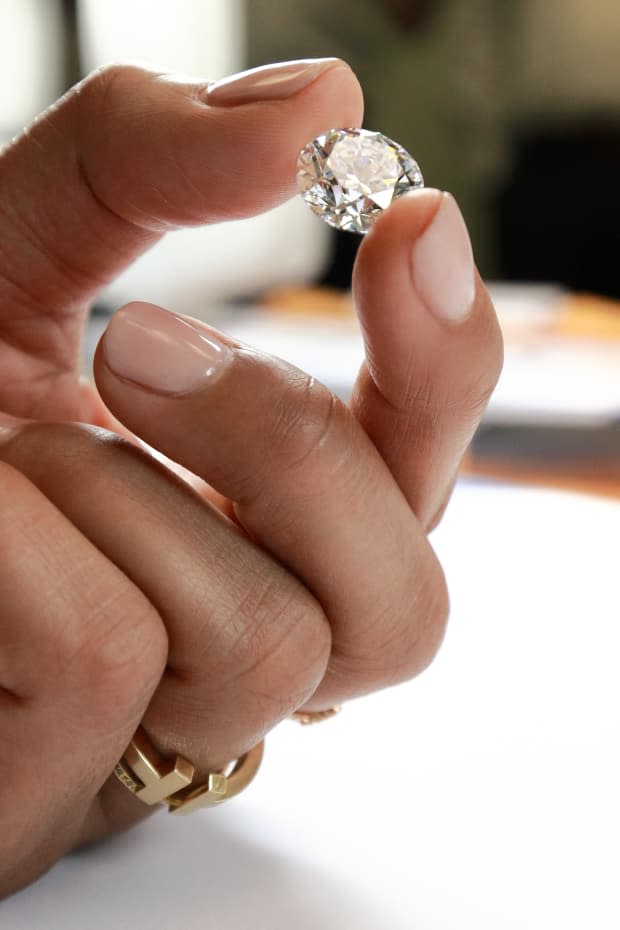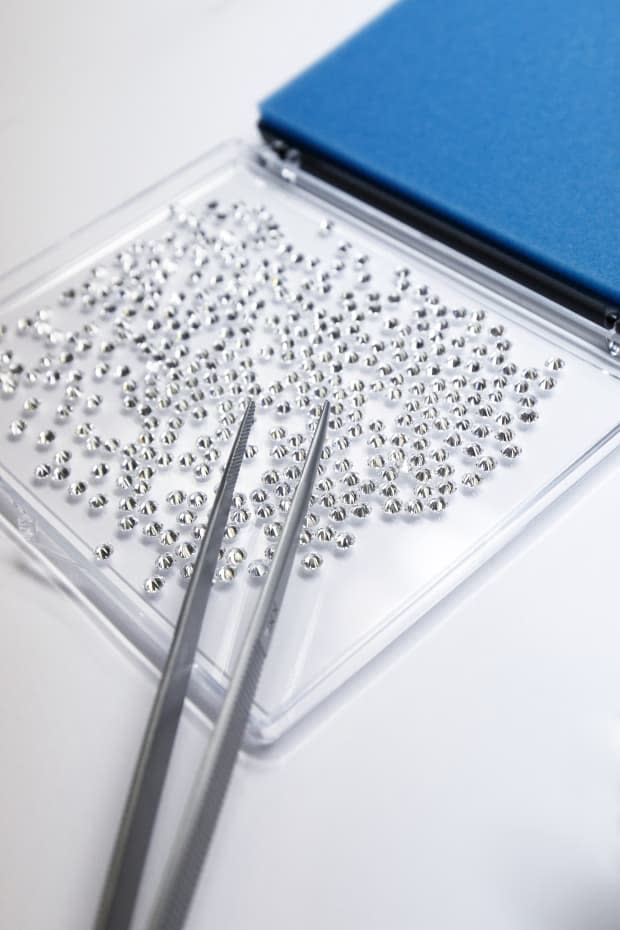Could Tiffany & Co. Tip the Scales in Favor of a More Transparent Diamond Industry?
Investigating the potential impact of the brand's recently announced sourcing initiative.

When Tiffany & Co. announced earlier this month that it planned to start telling its customers exactly where their diamonds come from, it was couched in the bold claim that the company would be sparking a "new era of diamond transparency" by doing so.
"Tiffany believes that knowing provenance" — i.e. where diamonds are sourced — "is critical to ensuring its diamonds are among the most responsibly sourced in the world," the brand said in a release.
To that end, each of the Tiffany's newly sourced, individually registered diamonds of 0.18 carats and larger are now being laser-etched with serial codes invisible to the naked eye that can provide geographic information about their origins.
Why is this a big deal? Unlike garments, pieces of jewelry are not required to come with a tag detailing their country of origin. And even if they were, individual components like diamonds probably wouldn't be, just as the shirt in your closet can legally claim to be made in the U.S. without noting that the buttons came from China. But as consumer awareness of the potential ethical issues surrounding diamond mining has grown both through news reports and films like 2006's "Blood Diamond," the pressure for jewelry companies to prove their innocence has also increased.
Many brands have relied on the Kimberley Process, a certification scheme established in 2003 by the UN General Assembly, to assuage consumer consciences. Over the past 15 years, however, critics have claimed that the Kimberley Process's stated mission of ensuring that "diamond purchases were not financing violence by rebel movements" is grossly inadequate as an ethical certification because it doesn't guard against things like child labor and environmental abuse.
Some companies, like online diamond retailer Brilliant Earth, have subsequently built their businesses on assuring customers that they're going "beyond conflict free" with their sourcing. In fact, Brilliant Earth has been publishing provenance for its diamonds online since long before Tiffany & Co.'s announcement.

"Our success has demonstrated the immense consumer demand for responsibility within the jewelry industry," Brilliant Earth CEO and co-founder Beth Gerstein said via email. "We're thrilled that Tiffany's announcement about providing origin information on their diamonds reflects the industry's growing understanding that consumers expect an ethical product."
The question is whether companies like Brilliant Earth have been able to back up their provenance claims. According to an in-depth report by The Next Web, there's reason to think those promises might be too good to be true. What it boils down to is basically the fact that — whether the brand is well-intentioned or purposefully scammy — it doesn't own its own inventory. That means it's making provenance claims dependent on the third parties it buys from, which are difficult to verify (and in at least one proven case, inaccurate).
That, according to diamond expert and founder of The Diamond Pro Ira Weissman, is where Tiffany & Co. could potentially break genuinely new ground.
"What makes Tiffany different is that... they're one of the very few companies — they might be the only one, now that I think about it — that is in control of their entire supply chain," Weissman tells Fashionista on the phone. Since Tiffany & Co. buys rough diamonds straight from suppliers like diamond mining giant De Beers rather than waiting for middlemen to cut and polish the stones, Weissman explains, Tiffany & Co. has "total control."
There are still limits to Tiffany & Co.'s new initiative, as it is only publishing the provenance information for individually registered diamonds, which means smaller diamonds that are sold in "parcels" will be left out. Plus, information about the specific mines that unearthed the diamonds will still remain opaque even as countries of origin are revealed. But according to Weissman, general geographic information will still go a long way toward making the supply chain more ethical, as different countries have demonstrably different standards when it comes to diamond mining.
So is Tiffany & Co. really poised to usher in a new era of transparency in the world of fine jewelry? It's probably true that companies like Brilliant Earth have, however imperfectly, been helping to pave the way by proving the consumer desire for ethically sourced products exists. But as Gucci's decision to go fur-free in late 2017 proved, sometimes it takes a major player to really tip the scales in favor of a new industry norm.
"I think it's a harbinger of the future to come," Weissman says. "Tiffany's is the leading brand in this industry, so whatever they do, everyone else tends to follow."
